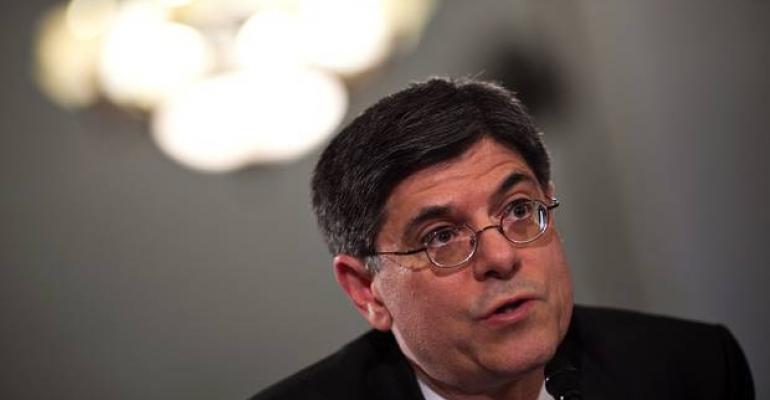President Obama has chosen his chief of staff Jack Lew to succeed Tim Geithner as the new Secretary of the Treasury, and many are already speculating that Lew will be good for Wall Street.
Like Robert Rubin, the Treasury secretary under Clinton and mentor to Geithner, Lew has a history at Citi, serving as managing director and chief operating officer of its global wealth management and alternative investments units leading up to the 2008 market crash.
And many are speculating whether Lew will take after Geithner and Rubin, known for his minimal regulation of Wall Street. Will he be sympathetic to an industry he used to work for? National Journal had an interesting article questioning whether Lew will join the Rubin following:
Rubinomics: It’s the cult that never quits. Now the nation is faced with a potential new acolyte. Is Jacob Lew, who is expected to be named Thursday as the replacement for Geithner, yet another Rubinite who will largely follow the policies of his predecessor? Calm, brilliant, competent at everything he’s tried—from the Office of Management and Budget to deputy secretary of State to chief of staff—Lew has smoothly run the White House in the year since William Daley left. He has a reputation for unimpeachable integrity and total honesty, as well as a mastery of the budget that will be critical over the next four years of fiscal fights. But many critics fear that the picture is different when it comes to Wall Street. On financial reform, Lew is a virtual cipher who, in his few public pronouncements, has appeared to toe the Rubin-Geithner line of minimal interference with America’s giant banks.
Some believe Lew will be even friendlier to Wall Street than Geithner was during his tenure. And that wouldn’t be good for investor protection, says Andrew Stoltmann, an attorney with The Stoltmann Law Offices in Chicago.
Lew’s professed lack of expertise in financial regulation, along with his tenure at the original too-big-to-fail bank, Citigroup, raises major concerns. In his role as Treasury Secretary, Lew will be extending his reach to Wall Street and the implementation of the 2010 Dodd-Frank regulatory overhaul. There are real fears that a Lew Treasury might not aggressively push back financial industry efforts to water down the Dodd-Frank financial-reform law or keep an eye out for the next financial crisis.
In addition, Lew’s past testimony during his Senate confirmation of his OMB Chairmanship in 2010 is very troubling. Lew disclosed he didn’t think Wall Street’s problems had all that much to do with deregulation, from the removal of barriers to creating too-big-to-fail banks such as Citigroup. Instead, he thought the financial crisis was mainly due to derivatives and too much leverage, concluding that he didn’t believe deregulation was the proximate cause of the crisis.
But of course it’s not a guarantee that Lew will go easy on Wall Street; in fact, some believe his background may actually push him to go harder on financial institutions. From The New Yorker:
Some critics will view Lew’s appointment as another sop to the banks on Obama’s part. It’s certainly not very imaginative, but Lew deserves a chance to prove himself. An alternative reading is that given his history with Citi, and the need to assure the public he isn’t a Wall Street patsy, he will be driven to adopt a tougher approach to financial regulation than his predecessor, Timothy Geithner.
It’s unclear what the industry thinks at this point. SIFMA was vague in its response to the nomination, saying that he’ll have a lot of important issues to tackle and that the secretary should better coordinate the rules coming out of Dodd-Frank and other financial regulations.


